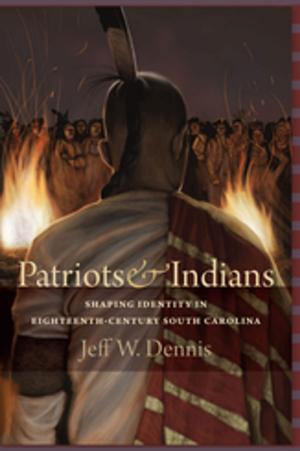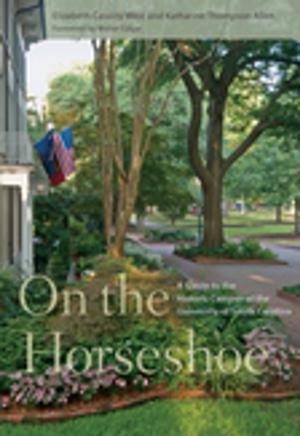| Author: | John Leland | ISBN: | 9781611172249 |
| Publisher: | University of South Carolina Press | Publication: | October 15, 2012 |
| Imprint: | University of South Carolina Press | Language: | English |
| Author: | John Leland |
| ISBN: | 9781611172249 |
| Publisher: | University of South Carolina Press |
| Publication: | October 15, 2012 |
| Imprint: | University of South Carolina Press |
| Language: | English |
In Learning the Valley, award-winning nature writer John Leland guides readers through the natural and human history of the Shenandoah Valley in twenty-five short essays on topics ranging from poison ivy and maple syrup to Stonewall Jackson and spelunking. Undergirding this dynamic narrative of place and time is a tale of selfdiscovery and relationship building as Leland's excursions into the valley lead him to a new awareness of himself and strengthen his bond with his young son, Edward. Spanning some two hundred miles through the Blue Ridge and Allegheny mountains in western Virginia, the Shenandoah Valley is the prehistoric home of mastodons and giants sloths, the site of a storied Civil War campaign, and now a popular destination for outdoor adventures to be had beneath the oaks, chestnuts, hickories, maples, and centuries-old cedars. Leland offers informed perspectives on the valley's rich heritage, drawing from geology, biology, paleontology, climatology, and military and social history to present a compelling appreciation for the region's importance from prehistory to the present and to map the impact of humanity and nature on one another within this landscape. Leland's essays are grounded in recognizable landmarks including House Mountain, Massanutten Mountain, Maury River, Whistle Creek, Harpers Ferry, and Student Rock. Whether he is chronicling the European origins of the valley's so-called American boxwoods, commenting on the nineteenth-century fascination with sassafras, or recalling his son's first reactions to the Natural Bridge of Virginia and its ncompassing tourist developments, Leland uses keen insights, adroit research, and thoughtful literary and historical allusions to bring the "Big Valley" vibrantly to life. An amiable and accomplished tour guide, Leland readily shares all he has learned in his years among the woods, waters, and wildlife of the Shenandoah. But the heart of his narrative transcends the valley and invites readers to find their own sites of adventure and reflection, to revisit the wonders and mysteries to be found in their own backyards as a chance to, in the words of Henry David Thoreau, "live like a traveler at home."
In Learning the Valley, award-winning nature writer John Leland guides readers through the natural and human history of the Shenandoah Valley in twenty-five short essays on topics ranging from poison ivy and maple syrup to Stonewall Jackson and spelunking. Undergirding this dynamic narrative of place and time is a tale of selfdiscovery and relationship building as Leland's excursions into the valley lead him to a new awareness of himself and strengthen his bond with his young son, Edward. Spanning some two hundred miles through the Blue Ridge and Allegheny mountains in western Virginia, the Shenandoah Valley is the prehistoric home of mastodons and giants sloths, the site of a storied Civil War campaign, and now a popular destination for outdoor adventures to be had beneath the oaks, chestnuts, hickories, maples, and centuries-old cedars. Leland offers informed perspectives on the valley's rich heritage, drawing from geology, biology, paleontology, climatology, and military and social history to present a compelling appreciation for the region's importance from prehistory to the present and to map the impact of humanity and nature on one another within this landscape. Leland's essays are grounded in recognizable landmarks including House Mountain, Massanutten Mountain, Maury River, Whistle Creek, Harpers Ferry, and Student Rock. Whether he is chronicling the European origins of the valley's so-called American boxwoods, commenting on the nineteenth-century fascination with sassafras, or recalling his son's first reactions to the Natural Bridge of Virginia and its ncompassing tourist developments, Leland uses keen insights, adroit research, and thoughtful literary and historical allusions to bring the "Big Valley" vibrantly to life. An amiable and accomplished tour guide, Leland readily shares all he has learned in his years among the woods, waters, and wildlife of the Shenandoah. But the heart of his narrative transcends the valley and invites readers to find their own sites of adventure and reflection, to revisit the wonders and mysteries to be found in their own backyards as a chance to, in the words of Henry David Thoreau, "live like a traveler at home."















